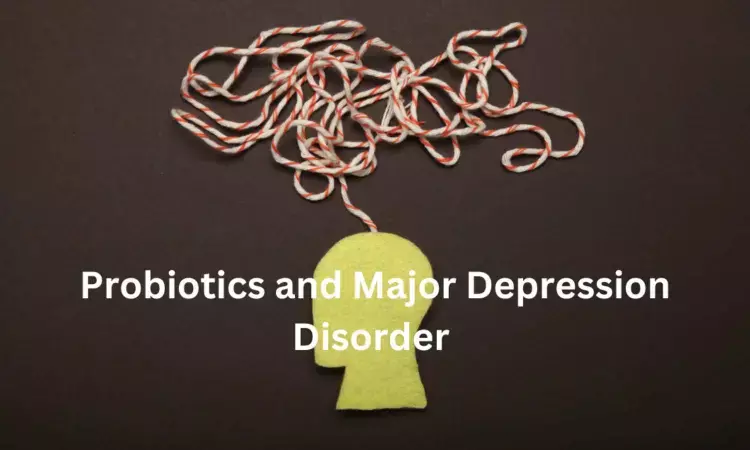- Home
- Medical news & Guidelines
- Anesthesiology
- Cardiology and CTVS
- Critical Care
- Dentistry
- Dermatology
- Diabetes and Endocrinology
- ENT
- Gastroenterology
- Medicine
- Nephrology
- Neurology
- Obstretics-Gynaecology
- Oncology
- Ophthalmology
- Orthopaedics
- Pediatrics-Neonatology
- Psychiatry
- Pulmonology
- Radiology
- Surgery
- Urology
- Laboratory Medicine
- Diet
- Nursing
- Paramedical
- Physiotherapy
- Health news
- Fact Check
- Bone Health Fact Check
- Brain Health Fact Check
- Cancer Related Fact Check
- Child Care Fact Check
- Dental and oral health fact check
- Diabetes and metabolic health fact check
- Diet and Nutrition Fact Check
- Eye and ENT Care Fact Check
- Fitness fact check
- Gut health fact check
- Heart health fact check
- Kidney health fact check
- Medical education fact check
- Men's health fact check
- Respiratory fact check
- Skin and hair care fact check
- Vaccine and Immunization fact check
- Women's health fact check
- AYUSH
- State News
- Andaman and Nicobar Islands
- Andhra Pradesh
- Arunachal Pradesh
- Assam
- Bihar
- Chandigarh
- Chattisgarh
- Dadra and Nagar Haveli
- Daman and Diu
- Delhi
- Goa
- Gujarat
- Haryana
- Himachal Pradesh
- Jammu & Kashmir
- Jharkhand
- Karnataka
- Kerala
- Ladakh
- Lakshadweep
- Madhya Pradesh
- Maharashtra
- Manipur
- Meghalaya
- Mizoram
- Nagaland
- Odisha
- Puducherry
- Punjab
- Rajasthan
- Sikkim
- Tamil Nadu
- Telangana
- Tripura
- Uttar Pradesh
- Uttrakhand
- West Bengal
- Medical Education
- Industry
Probiotics as add on treatment to have positive effects on Major Depressive disorder: JAMA

Major depressive disorder (MDD) or clinical depression, is a rising concern, it affects how one feels, thinks and behaves and can lead to a variety of emotional and physical problems. Microbiota-gut-brain axis has been shown to be an important target for novel treatments in recent years.
JAMA Psychiatry reports a randomized clinical trial that suggests daily probiotic intake for 8 weeks resulted in greater improvements in depressive and anxiety symptoms compared with placebo.
To provide insights into the acceptability and tolerability data and estimates of intervention effect size for probiotics as adjunctive treatment for patients with major depressive disorder (MDD) Viktoriya L. Nikolova, PhD and team conducted a pilot randomized clinical trial.
It was a single-center, double-blind, placebo-controlled pilot randomized clinical trial, adults aged 18 to 55 years with MDD taking antidepressant medication but having an incomplete response were studied. A random sample was recruited from primary and secondary care services and general advertising in London, United Kingdom. Data were collected between September 2019 and May 2022 and analyzed between July and September 2022.
A Multistrain probiotic (8 billion colony-forming units per day) or placebo daily for 8 weeks added to ongoing antidepressant medication. The pilot outcomes of the trial were retention, acceptability, tolerability, and estimates of putative treatment effect on clinical symptoms (depression: Hamilton Depression Rating Scale [HAMD-17] and Inventory of Depressive Symptomatology [IDS] scores; anxiety: Hamilton Anxiety Rating Scale [HAMA] and General Anxiety Disorder [GAD-7] scores) to be used as indicators for a definitive trial.
The key findings of the study are
• A total of 49 patients received the intervention and were included in intent-to-treat analyses; of these, 39 (80%) were female. A total of 24 were randomized to probiotic and 25 to placebo.
• Attrition was 8% (1 in the probiotic group and 3 in the placebo group), adherence was 97.2%, and there were no serious adverse reactions.
• For the probiotic group, mean (SD) HAMD-17 scores at weeks 4 and 8 were 11.00 (5.13) and 8.83 (4.28), respectively; IDS, 30.17 (11.98) and 25.04 (11.68); HAMA, 11.71 (5.86) and 8.17 (4.68); and GAD-7, 7.78 (4.12) and 7.63 (4.77).
• For the placebo group, mean (SD) HAMD-17 scores at weeks 4 and 8 were 14.04 (3.70) and 11.09 (3.22), respectively; IDS, 33.82 (9.26) and 29.64 (9.31); HAMA, 14.70 (5.47) and 10.95 (4.48); and GAD-7, 10.91 (5.32) and 9.48 (5.18).
“ The acceptability, tolerability, and estimated effect sizes on key clinical outcomes are promising and encourage further investigation of probiotics as add-on treatment for people with MDD in a definitive efficacy trial” concluded the researchers.
Reference: Nikolova VL, Cleare AJ, Young AH, Stone JM. Acceptability, Tolerability, and Estimates of Putative Treatment Effects of Probiotics as Adjunctive Treatment in Patients With Depression: A Randomized Clinical Trial. JAMA Psychiatry. Published online June 14, 2023. DOI:10.1001/jamapsychiatry.2023.1817
MSc. Neuroscience
Niveditha Subramani a MSc. Neuroscience (Faculty of Medicine) graduate from University of Madras, Chennai. Ambitious in Neuro research having worked in motor diseases and neuron apoptosis is interested in more of new upcoming research and their advancement in field of medicine. She has an engrossed skill towards writing and her roles at Medical dialogue include Sr. Content writer. Her news covers new discoveries and updates in field of medicine. She can be reached at editorial@medicaldialogues.in
Dr Kamal Kant Kohli-MBBS, DTCD- a chest specialist with more than 30 years of practice and a flair for writing clinical articles, Dr Kamal Kant Kohli joined Medical Dialogues as a Chief Editor of Medical News. Besides writing articles, as an editor, he proofreads and verifies all the medical content published on Medical Dialogues including those coming from journals, studies,medical conferences,guidelines etc. Email: drkohli@medicaldialogues.in. Contact no. 011-43720751


